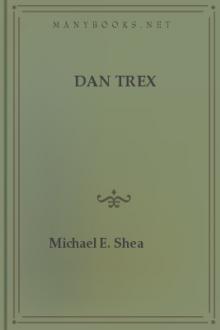How to Be a Mentsh (and Not a Shmuck) by Wex, Michael (summer reading list txt) 📕

Read free book «How to Be a Mentsh (and Not a Shmuck) by Wex, Michael (summer reading list txt) 📕» - read online or download for free at americanlibrarybooks.com
Read book online «How to Be a Mentsh (and Not a Shmuck) by Wex, Michael (summer reading list txt) 📕». Author - Wex, Michael
A shmendrik is anybody from Bob Dylan’s Mr. Jones in “Ballad of a Thin Man,” who knows that something is happening here, but “don’t know what it is,” to Rupert Pupkin, the hapless asshole played by Robert De Niro in The King of Comedy. At the end of the movie, Pupkin, a thirty-one-year-old messenger and completely talentless aspiring comic who lives with his mother, explains why he has kidnapped talk-show host Jerry Langford and demanded a spot on Langford’s show as ransom for Langford’s safe return. In the movie’s best-known line, Pupkin gives such perfect voice to the painful mixture of impotence and delusion that characterizes the shmendrik that you almost feel sorry for him: “Better to be king for a night,” he says, “than shmuck for a lifetime.” If only it were really possible.
The shmendrik has a bumbling quality, an incompetence that is almost endearing, as long as it isn’t directed at you. He or she differs from the nebbish, a seeming milquetoast of a person for whom you feel immediately sorry, not only in that being a nebbish is more a matter of appearance than actual attainment or ability (think of nebbish as the specifically Jewish forerunner of the more pluralistic nerd), but also, and more importantly, because the shmendrik, like the paranoiac, bases his or her life on a delusion, generally one of ability. Where the nebbish might do something very well, but wear a misbuttoned shirt while doing it, the shmendrik can be immaculately tailored, but never stops walking into walls. It is significant that shmendrik is also used by women to refer to a penis (I mean the real thing) for which they feel no warmth and by which they are not impressed. “A whole night of Viagra and he still couldn’t get the shmendrik to stand up long enough to do it,” or, “Go ahead. If that’s all you want, put the shmendrik in and get it over with.”
A shmendrik is a certain breed of shmuck, limply ineffectual and unconscious of this limitation. Like Charlie Brown, the shmendrik considers himself on top of things, and just knows that this time, things are going to be different. He suffers from delusions of understanding, illusions that things are now under control. The Federal Emergency Management Agency’s response to Hurricane Katrina and the Buffalo snowstorm of 2006, along with its faked California press conference in 2007, are textbook examples of what it means to be a shmendrik.
The shmendrik is as harmless a shmuck as you’re ever going to find, and we can class all sorts of day-to-day nudniks—tedious pests—under its rubric. If you’re not dressed as a pirate or B-movie hooker right now, while reading this sentence; if you mention your tedious personal hobbyhorse—whether it’s the Kennedy assassination, brewed condiments, or Engelbert Hump-erdinck’s superiority to Tom Jones—only on your blog and not in live conversation; if you’ve refused to allow someone who has cheated you once an opportunity to do so again, then you probably aren’t a shmendrik. Or not much of one, at least.
Before we go on to describe the more active kinds of shmuck, though, it is probably a good idea to take a more detailed look at what a shmuck is not.
TWO
What’s a Mentsh?
I
LIKEshmuck, mentsh is a Yiddish word. Fundamentally, it means “person, human being,” and applies to everyone on earth. So, for instance, you could say that John iz a mentsh on a gal, a good-natured guy, or Mary iz a mentsh on a gal, a good-natured gal. Every human being is some sort of mentsh: John is a mentsh, Mary is a mentsh, even little Tommy, busy pulling the tail of their dog, Farfel, is a mentsh. Farfel is an innocent victim who deserves our pity, but he is an animal, not a mentsh.
In this sense, we are all mentshn. Regardless of our capacities, attitudes, or deportment, we are all human beings, just as Warner Bros.’ Porky, E. B. White’s Wilbur, and Arnold Ziffle are pigs. It’s strictly a matter of biology. But the Yiddish way of thinking has never been content to leave biology alone—just look what psychoanalysis managed to do to humping—and it long ago extended the meaning of mentsh well beyond “featherless, rational biped” to “featherless, rational biped who knows how to behave like a featherless, rational biped.” As they say in Yiddish, “A mentsh iz a mentsh vayl er iz a mentsh”—a mentsh is a mentsh because he’s a mentsh.
Extending mentsh’s field of meaning from biological classification to moral attainment is a uniquely Yiddish development, without any parallel in the German from which the word mentsh derives. Only in Yiddish does mentsh mean “decent, respectable, upstanding person; honest, honorable person; man or woman of integrity; person of moral substance.” If my mother had said, “Sei ein mensch, be a mensch,” to me in German (an event about as likely as her coming home with a honey-glazed ham in her brand-new Volkswagen), it would have meant, “Michael, my son, stop being a tortoise.”
Since we’re going to be speaking about a meaning that doesn’t exist in German, I’ve decided to avoid the more familiar, but totally German spelling, mensch, which carries none of the meanings that we’re going to look at in this book, and instead spell mentsh according to





Comments (0)